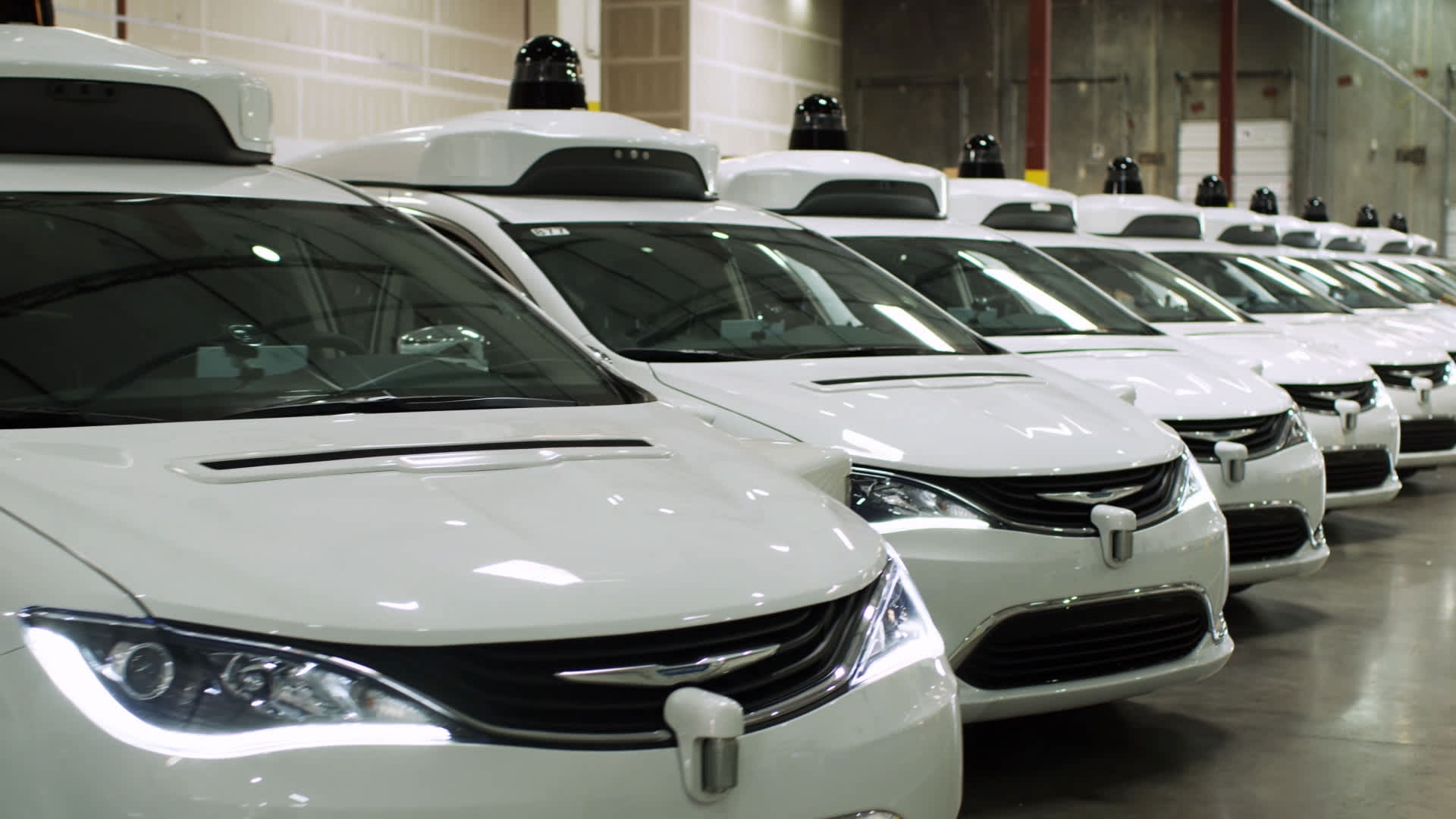The California Department of Motor Vehicles approved autonomous vehicle deployment permits for GM-backed Cruise and Alphabet’s Waymo on Thursday. It allows the companies to charge a fee and receive compensation for autonomous services offered to the public, such as ride-hailing, in certain areas.
The companies still need approval from the California Public Utilities Commission, according to the California DMV, but it means the companies are one step closer to providing services to the general public outside of a testing program.
Both companies have been testing fleets of autonomous vehicles in California with permits that allow for free driverless rides to passengers in test vehicles.
Under the new authorization, Cruise vehicles can operate on public roads in designated parts of San Francisco between 10 p.m. and 6 a.m., including in light rain or light fog, but cannot exceed 30 miles per hour, the department said. Waymo can operate its fleet in parts of San Francisco and San Mateo counties at or below 65 mph, including in the rain or light fog.
Commercializing autonomous vehicles has been far more challenging than many predicted even a few years ago, but Waymo and Cruise are considered to be two of the frontrunners.
In May, both Waymo and Cruise applied for permits to begin charging for rides and delivery. Cruise applied to not have a safety driver present, while Waymo applied to have a safety driver, Reuters reported.
In June, Cruise earned a permit enabling it to offer driverless rides to passengers in test vehicles in California. Waymo opened self-driving car testing to some San Francisco residents through a program dubbed “Trusted Tester” last month.
Since acquiring Cruise in 2016, GM has brought on investors such as Honda Motor, SoftBank Vision Fund, and, more recently, Walmart and Microsoft.
“Today’s approval from the California DMV makes Cruise the first autonomous ride-hail company to receive a driverless deployment permit in the state. It brings us one step closer to achieving our mission to make transportation safer, better, and more affordable in cities with our fleet of all-electric, self-driving and shared vehicles,” Rob Grant, Cruise senior vice president of government affairs and social impact, said in an emailed statement to CNBC.
In December 2020, Nuro became the first autonomous vehicle developer to receive a permit to run commercial deliveries with retail partners.
– Lora Kolodny contributed to this report

buy ivermectin online – buy atacand 8mg online buy tegretol 200mg for sale
buy isotretinoin generic – buy dexamethasone 0,5 mg online cheap purchase zyvox generic
amoxil for sale online – diovan price ipratropium 100 mcg pills
zithromax 500mg sale – order nebivolol 5mg without prescription order bystolic sale
cheap omnacortil 20mg – buy cheap generic omnacortil progesterone for sale online
acticlate price – purchase vibra-tabs generic order glucotrol without prescription
amoxiclav pills – ketoconazole oral oral cymbalta 20mg
amoxiclav oral – buy cymbalta 40mg pill order cymbalta 20mg generic
order rybelsus 14 mg for sale – buy periactin tablets cyproheptadine 4mg cheap
buy tizanidine pill – buy hydroxychloroquine paypal hydrochlorothiazide for sale
cheap viagra pill – buy viagra 100mg pill female cialis pill
cheap cialis 20mg – purchase tadalafil without prescription sildenafil drug
buy cenforce for sale – metformin 1000mg cost glucophage pill
buy atorvastatin pills – purchase prinivil pill buy lisinopril 10mg
buy omeprazole 10mg sale – buy tenormin for sale atenolol price
where can i buy medrol – buy methylprednisolone 4 mg buy generic triamcinolone 10mg
clarinex order – dapoxetine 30mg price buy dapoxetine 90mg pills
where can i buy cytotec – order xenical 60mg sale diltiazem 180mg oral
zovirax generic – order allopurinol without prescription crestor pills
motilium cost – cyclobenzaprine 15mg tablet order flexeril 15mg pill
motilium 10mg canada – order tetracycline 500mg pills flexeril for sale online
order inderal pill – purchase inderal pill buy methotrexate 2.5mg generic
order coumadin pills – purchase medex online brand losartan
levaquin 500mg cost – levaquin ca oral ranitidine 150mg
buy ondansetron – buy zocor pills for sale purchase simvastatin generic
buy valtrex for sale – valtrex online buy fluconazole order online
buy modafinil 200mg sale buy modafinil online cheap oral modafinil order generic modafinil 200mg modafinil where to buy modafinil 200mg cost order provigil 100mg generic
Good blog you have here.. It’s intricate to on great calibre belles-lettres like yours these days. I truly comprehend individuals like you! Go through guardianship!!
The sagacity in this tune is exceptional.
buy zithromax 500mg without prescription – order ciplox 500 mg pill flagyl over the counter